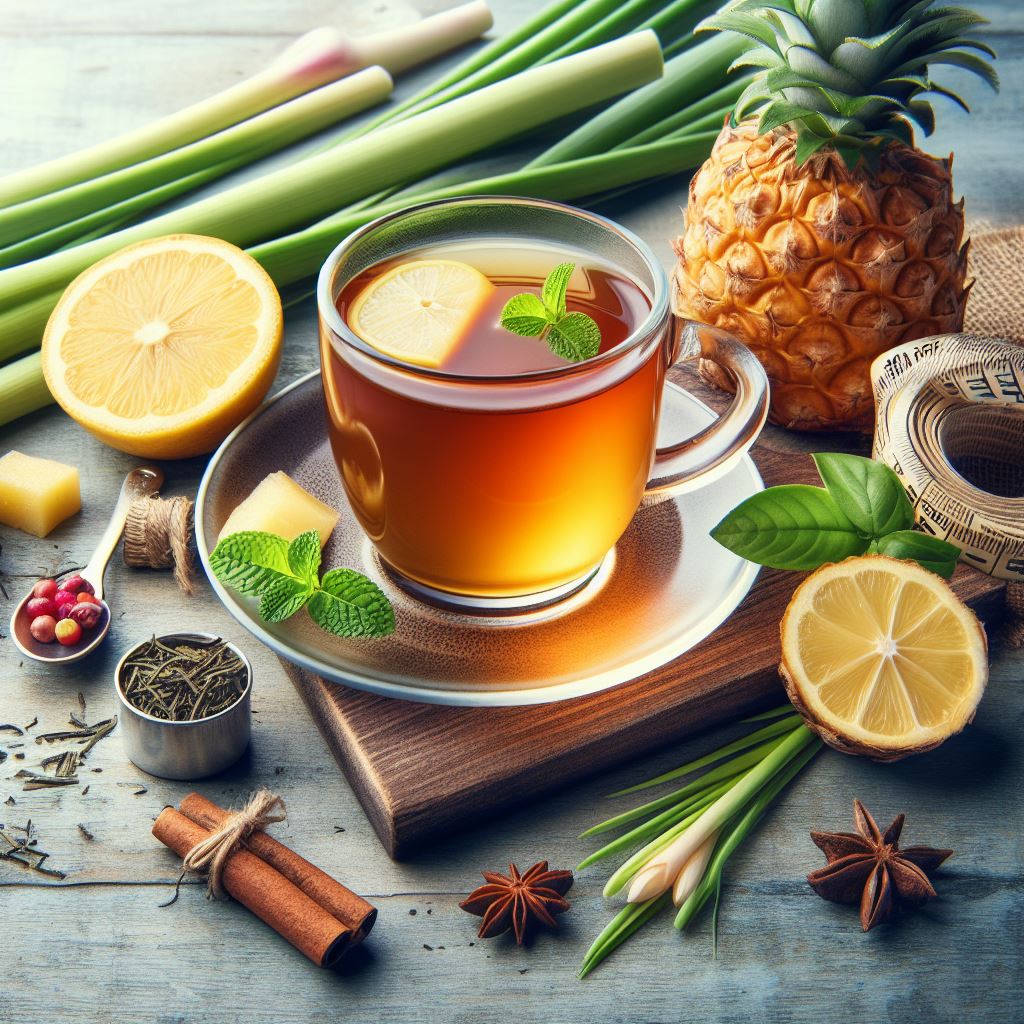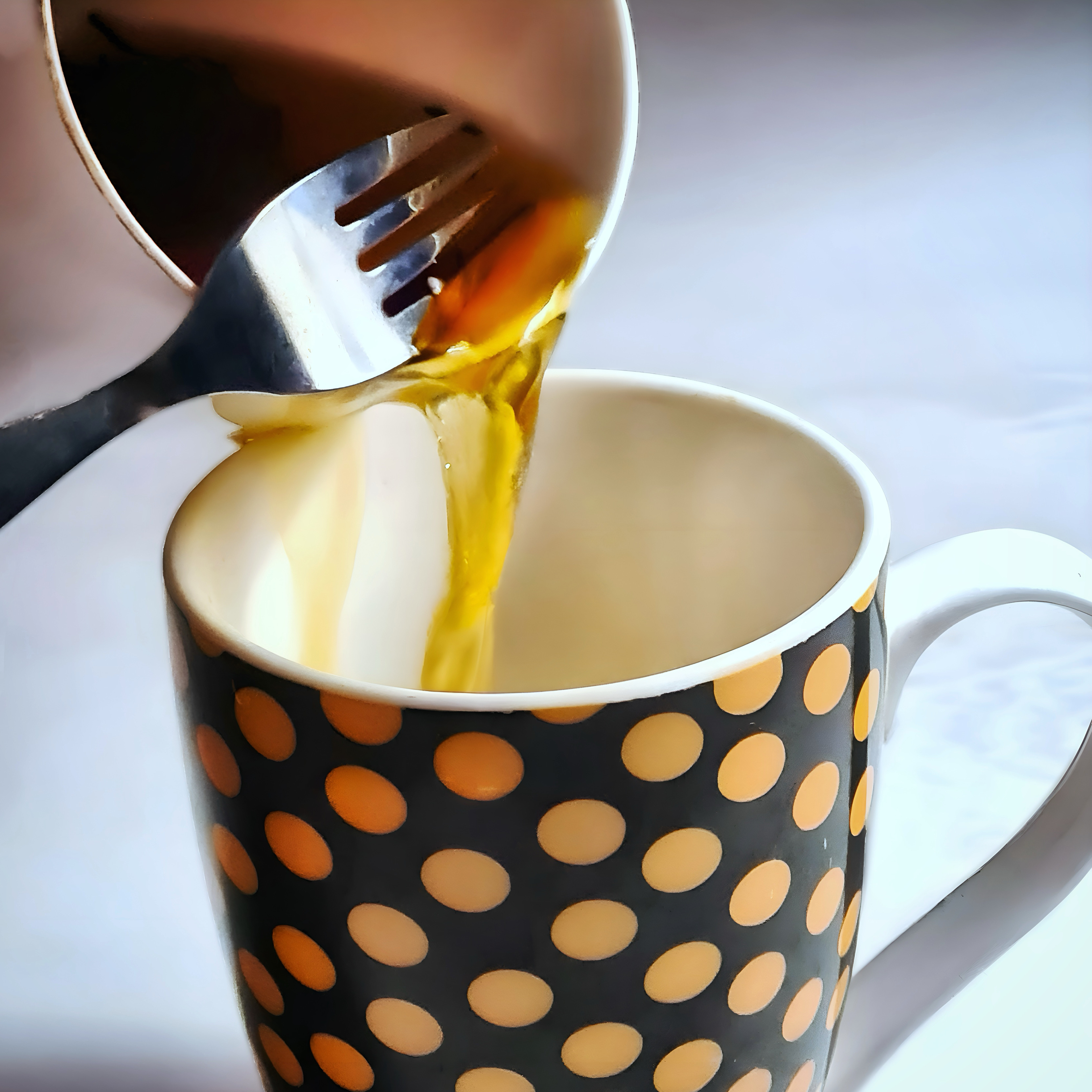Constipation is a troublesome and annoying condition that affects everyone at some point in their lives. But did you know, one of the most effective and enjoyable ways to help with constipation is to drink tea?! Tea is not only a delicious beverage, but also a source of hydration, antioxidants, and other beneficial compounds that can improve your digestive health and ease your bowel movements.
In this article, we will explore some of the best teas for constipation relief, how they work, and how to prepare and consume them. We will also share some additional tips to prevent and treat constipation naturally. Let’s get started!

Understanding Constipation
First of all, it’s important to know a bit about constipation so we can understand how tea affects it. Constipation is defined as having fewer than three bowel movements per week, or having difficulty passing stool. The stool may be hard, dry, lumpy, or small. Some people may even experience straining, pain, bleeding, or a feeling of blockage.
The normal frequency and consistency of bowel movements vary from person to person, depending on their diet, lifestyle, and health. However, if you have constipation for more than two weeks, or if you have severe symptoms or complications, you should consult your doctor.
Factors that can contribute to constipation:
1. Diet
A low-fiber diet can result in less bulky and softer stool, slowing down the transit time and increasing the risk of constipation. Fiber is a type of carbohydrate that is not digested by the body, but helps to form and move the stool through the colon. Fiber-rich foods include fruits, vegetables, whole grains, nuts, seeds, and legumes.
2. Hydration
A lack of fluid intake can also contribute to constipation. By not drinking enough, it can actually reduce the moisture and lubrication of the stool. Water is essential for the proper functioning of the digestive system, since it helps to dissolve and transport nutrients, enzymes, and waste products. Drinking enough water can help to prevent and relieve constipation, as well as improve your overall health and well-being.
3. Exercise
A sedentary lifestyle can also affect the motility and tone of the colon, as well as the blood circulation and oxygen supply to the digestive organs. So, exercise can help to stimulate the contraction and relaxation of the colon. It also encourages the release of hormones and neurotransmitters that regulate the bowel movements. Not just this, but exercise can even reduce stress, which can negatively impact the digestion and elimination processes.
4. Medication
Another cause of constipation can come from the side effects of certain medications. They can sometimes slow down the colon, reduce the secretion of fluids, or affect the nerve and muscle function of the digestive system. Some of the common medications that can cause constipation include opioids, antacids, iron supplements, calcium supplements, antihistamines, antidepressants, and antispasmodics. If you are taking any medication that may cause constipation, you should talk to your doctor!
5. Stress
As mentioned before, stress can also interfere with the normal functioning of the digestive system. This is because it can alter the balance of the nervous system, the hormonal system, and the immune system. It can cause the colon to contract or relax abnormally, or to become hypersensitive or insensitive to the signals of the brain and the gut. Stress can also affect the appetite, the food choices, and the eating habits, influencing the quality of the stool.
6. Medical conditions
Some medical conditions can also cause or worsen constipation, either by affecting the structure, the function, or the innervation of the colon, or by causing inflammation, infection, or obstruction. Some of the common medical conditions that can cause constipation include irritable bowel syndrome (IBS), inflammatory bowel disease (IBD), diverticulitis, colon cancer, diabetes, hypothyroidism, Parkinson’s disease, multiple sclerosis, and spinal cord injury.

How Tea Can Help With Constipation:
Tea is not only delicious drink, but also a rich source of antioxidants, polyphenols, flavonoids, and other phytochemicals. These are known to provide various health benefits, such as reducing inflammation, lowering cholesterol, improving blood pressure, enhancing immunity, and preventing cancer. Some teas also have properties that help with constipation relief, as shown below:
1. Aids digestion
Some teas can stimulate the production and secretion of digestive juices. such as, saliva, gastric acid, bile, and pancreatic enzymes. These can all help to break down and absorb the food, and facilitate the movement of the stool through the colon. Some of these teas include ginger, peppermint, fennel, and anise.
2. Relieves discomfort
Some teas can also soothe the digestive tract, reduce spasms, cramps, and pain, and relax the muscles and nerves of the colon. Some of these teas include chamomile, lavender, lemon balm, and mint.
3. Acts as laxative
Some teas can also act as natural laxatives. Either by increasing the water content and the bulk of the stool, or by stimulating the contraction and the evacuation of the colon. Some of these teas include senna, cascara, aloe vera, and rhubarb.
4. Hydrates the body
Tea can also contribute to the fluid intake of the body, essential for the hydration and the lubrication stool. Not only this, it can also replenish the electrolytes and the minerals that are lost during the bowel movements. Things like, sodium, potassium, calcium, and magnesium.
The Best Choice of Tea for Constipation:
There are many types and varieties of tea, each with its own flavor, aroma, and health benefits. However, not all teas are equally effective for constipation relief. Here are some of the best teas for constipation, how they work, and how to prepare and consume them.
1. Senna Tea
Senna tea is one of the most potent and widely used herbal laxatives. It contains compounds called anthraquinones, which can stimulate the colon and induce bowel movements. This tea can also increase the water and the electrolyte secretion into the colon, softening and moistening the stool.
Senna tea is usually effective within 6 to 12 hours of consumption, and can produce strong and frequent bowel movements. However, senna tea should be used with caution, as it can cause side effects. For example, abdominal cramps, diarrhea, dehydration, electrolyte imbalance, and dependency. Senna tea should not be used for more than two weeks, or by pregnant or breastfeeding women, children, or people with intestinal inflammation, obstruction, or hemorrhoids. You can purchase Senna tea from Amazon. Why not try senna tea with peppermint for the ultimate poop relieving tea!

Brewing Tips:
To prepare senna tea, steep one teaspoon of dried senna leaves or one senna tea bag in a cup of boiling water for 5 to 10 minutes. Strain and drink the tea before bedtime, or as directed by your doctor. You can add honey, lemon, or ginger to improve the taste and the effectiveness of the tea.
2. Ginger Tea
Ginger tea is another popular and effective herbal remedy for constipation. This is because it can enhance the digestion and the elimination processes. It stimulates the production and the secretion of digestive juices, such as saliva, gastric acid, bile, and pancreatic enzymes. All of which can help to break down and absorb the food, and facilitate the movement of the stool through the colon. Ginger tea can also relax the muscles and the nerves of the digestive tract, and reduce spasms, cramps, and pain.
It is usually effective within a few hours of consumption, and can produce mild and regular bowel movements. Ginger tea is generally safe and well-tolerated, but it can cause side effects such as heartburn, nausea, or allergic reactions in some people.

Brewing Tips:
To prepare ginger tea, peel and chop a small piece of fresh ginger root, and boil it in a cup of water for 10 to 15 minutes. Strain and drink the tea while it is warm, or as needed. You can add honey, lemon, or mint to enhance the flavor and the benefits of the tea.
3. Peppermint Tea
Peppermint tea is another common and beneficial herbal tea for constipation, as it can soothe and calm the digestive system. This tea contains menthol, which can relax the smooth muscles of the colon, and reduce spasms, cramps, and pain. Peppermint tea can also stimulate the production and the secretion of bile. Bile is great as it can help to digest fats and oils, and improve the stool consistency.
It is usually effective within a few hours of consumption, and can produce gentle and comfortable bowel movements. Peppermint tea is generally safe and well-liked, but it can cause side effects such as heartburn, nausea, or allergic reactions in some people. However, this is rare.

Brewing Tips:
To prepare peppermint tea, steep one teaspoon of dried peppermint leaves or one peppermint tea bag in a cup of boiling water for 5 to 10 minutes. Strain and drink the tea while it is hot, or as needed. You can add honey, lemon, or ginger to improve the taste and the effectiveness of the tea.
4. Green Tea
Green tea is one of the most popular and healthy teas in the world, and for good reason! It contains a high amount of antioxidants, catechins, and polyphenols that can protect the body from oxidative stress, inflammation, and chronic diseases. This tea can also help with constipation, as it has a mild laxative effect. Not only this, it can increase the water and the electrolyte secretion into the colon, softening and moistening the stool.
Green tea is usually effective within a few hours of consumption, and can produce moderate and regular bowel movements. It is generally safe and beneficial, but it can cause side effects such as insomnia, anxiety, or palpitations in some people, due to its caffeine content.

Brewing Tips:
To prepare green tea, steep one teaspoon of green tea leaves or one green tea bag in a cup of hot water (not boiling) for 2 to 3 minutes. Strain and drink the tea while it is warm, or as desired. You can add honey, lemon, or mint to enhance the flavor and the benefits of the tea.
5. Dandelion Tea
Dandelion tea is another herbal tea that can help with constipation. It is known to support the digestive health and the detoxification processes. This tea can also stimulate the production and the secretion of bile, helping to improve the stool consistency. Dandelion tea can also act as a diuretic, which can increase the urine output and the elimination of toxins and waste products.
It is usually effective within a few hours of consumption, and can produce mild and frequent bowel movements. Dandelion tea is generally safe and nutritious, but it can cause side effects such as allergic reactions, stomach upset, or diarrhea in some people.

Brewing Tips:
To prepare dandelion tea, steep one teaspoon of dried dandelion leaves or one dandelion tea bag in a cup of boiling water for 10 to 15 minutes. Strain and drink the tea while it is hot, or as needed. You can add honey, lemon, or ginger to improve the taste and the effectiveness of the tea. Learn more: How to Make Dandelion Tea: A Step-by-Step Guide
6. Licorice Tea
Licorice tea is another great herbal tea that can help with constipation. It is known to help regulate the bowel movements and the intestinal flora. This tea contains glycyrrhizin, which can increase the secretion of mucus and water into the colon, lubricating and softening the stool. Licorice tea can also modulate the inflammation and the immunity of the digestive system, and prevent the growth of harmful bacteria and fungi.
It is usually effective within a few hours of consumption, and can produce smooth and easy bowel movements. Licorice tea is generally safe and pleasant, but it can cause side effects such as high blood pressure, low potassium, or edema in some people, due to its sodium and mineral content. This tea should be avoided by people with hypertension, heart disease, kidney disease, or diabetes, or by people who are taking steroids, antihypertensives, or oral contraceptives.

Brewing Tips:
To prepare licorice tea, steep one teaspoon of dried licorice root or one licorice tea bag in a cup of boiling water for 10 to 15 minutes. Strain and drink the tea while it is warm, or as needed. You can add honey, lemon, or cinnamon to improve the taste and the benefits of the tea.
7. Chamomile Tea
We consider chamomile tea one of the best all-round herbal teas for health, and for many good reasons! It can calm the mind, the body, and the butt… This tea can help with constipation, since it can relax the muscles and the nerves of the digestive tract, and reduce spasms, cramps, and pain. Chamomile tea can also promote the secretion of digestive juices, such as saliva, gastric acid, and bile. This can help to digest and absorb the food, and facilitate the movement of the stool through the colon.
It is usually effective within a few hours of consumption, and can produce gentle and comfortable bowel movements. Chamomile tea is generally safe and well-tolerated, but it can cause drowsiness in some people. You can find some of best Chamomile options to try here.

Brewing Tips:
To prepare chamomile tea, steep one teaspoon of dried chamomile flowers or one chamomile tea bag in a cup of boiling water for 5 to 10 minutes. Strain and drink the tea while it is hot, or as needed. You can add honey, lemon, or lavender to enhance the flavor and the benefits of the tea. Try our Lavender Chamomile recipe!
Additional Tips for Managing Constipation
Drinking tea can be a great way to relieve and prevent constipation, but it is not the only solution. There are other factors that can affect your digestive health and your bowel movements, such as your diet, your exercise, and your hydration. Here are some additional tips to help you manage constipation naturally:
• Eat more fiber
Fiber is the key to a healthy and regular digestion, as it can add bulk and softness to the stool. Additionally, it speeds up the transit time and the evacuation of the colon. Fiber can also feed the beneficial bacteria in the gut, which can improve the intestinal health and the immunity. Aim to consume at least 25 to 30 grams of fiber per day, from sources such as fruits, vegetables, whole grains, nuts, seeds, and legumes.
• Drink more water
Water is probably the most important thing for a proper functioning digestive system. This is because it can dissolve and transport nutrients, enzymes, and waste products, and hydrate and lubricate the stool. Drinking enough water can help to prevent and relieve constipation, as well as improve your overall health and well-being. Aim to drink at least 8 to 10 glasses of water per day, or more if you are active, sweating, or taking laxatives.
• Exercise regularly
Exercise can help to stimulate the contraction and relaxation of the colon, as well as the release of hormones and neurotransmitters that regulate the bowel movements. Exercise can also reduce stress, which can negatively impact the digestion and elimination processes. Aim to exercise for at least 30 minutes, three to five times per week, or as recommended by your doctor. Try activities that you may like, such as walking, running, bike-riding, swimming, etc.
• Consult your doctor
If you have chronic or severe constipation, or if you have other symptoms or complications, such as blood in the stool, weight loss, fever, or vomiting, you should consult your doctor as soon as possible. Your doctor can diagnose the cause and the severity of your constipation. They may even prescribe the appropriate treatment. Doctors are also great, since they can advise you on the best diet, lifestyle, and natural remedies for your condition.
Conclusion
Constipation is a common and uncomfortable condition that can affect your quality of life and your health. However, there are many natural and effective ways to deal with constipation, such as drinking tea. Tea is not only a delicious and soothing beverage, but also a source of hydration, antioxidants, and other beneficial compounds that can improve your digestive health and ease your bowel movements.
Remember, tea is not a magic cure for constipation, but a natural and enjoyable way to support your digestive health and your well-being. However, tea is not a substitute for medical advice, diagnosis, or treatment. If you have any questions or concerns about your constipation or your health, you should always consult your doctor before drinking tea or taking any other natural remedies. Stay healthy and happy!
Discover More Tea-Related Articles:
- Earl Grey Lemonade – A Simple and Zesty Iced Tea
- How to Make Pomegranate Green Tea in 4 Steps
- Lilac Tea: How to Harvest, Brew, and Serve This Fragrant Tea
- The Simple Costa Rican Tea Recipe for Natural Weight Loss
- The Traditional Yemeni Tea – How to Make ‘Adeni Chai’
Sources:
- 8 herbal teas for constipation relief – Medical News Today
- Senna Tea: Benefits, Weight Loss, and Precautions (healthline.com)
- Licorice Root for Constipation | Healthfully
- Constipation: Causes, Symptoms, and Treatment (webmd.com)
- Medical Causes of Chronic Constipation (webmd.com)
- How water aids digestion and circulation of nutrients? | 4 Answers from Research papers (typeset.io)





Leave a Comment